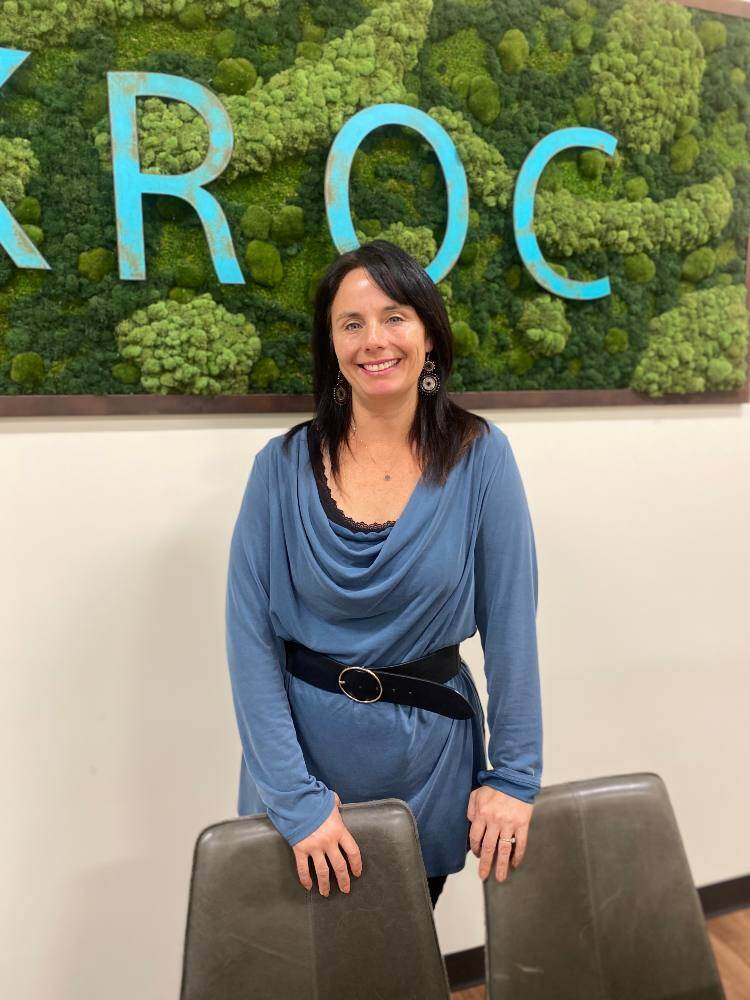I was delighted to join the social innovation field practicum in Rwanda in January 2025 where I, Professor Patricia Marquez, and eleven students saw first-hand the progressive, innovative spirit of the Rwandan people and its organizations. The genocide against the Tutsi in 1994 marked a very dark period in Rwandan history. With an estimated 800,000 citizens murdered at the hands of their friends, neighbors, and even family members, it is unimaginable how a society can recover. It appears Rwanda is on its way.

As a first stop of the practicum, we visited the Kigali Genocide Memorial where we learned the timeline of events that led up to the genocide as well as powerful visuals, reflective gardens, and the final resting place of thousands of victims.
 Kroc School students interacting with an exhibit at the Kigali Genocide Memorial
Kroc School students interacting with an exhibit at the Kigali Genocide Memorial
We also had the privilege of learning from Odette Nyiramilimo, Rwandan physician, senator, and leader in the Kroc IPJ Women Waging Peace Network, who is an amazing storyteller and shared her own experience surviving the atrocities of the 1994 genocide against the Tutsi.
From this foundational knowledge, we explored four major areas of social innovation that appeared to be bringing Rwanda to the next level of progress.
Innovation in Healthcare
We visited the country’s first ketamine clinic at the King Farsai Hospital, where Kroc alumna, Dr. Cindi Cassidy, has developed an innovative solution to treating people with depression, PTSD, and other mental health challenges. Through ketamine infusions, many patients have found peace and solace after years of suffering. An impactful convergence of psychology, peacebuilding, and social innovation.
 Kroc Students meeting with Dr. Cindi Cassady to discuss her innovative approach to mental healthcare using Ketamine Infusions
Kroc Students meeting with Dr. Cindi Cassady to discuss her innovative approach to mental healthcare using Ketamine Infusions
Dr. Cindi Cassady was interviewed by Kroc Student Halle Schilling during the practicum for our Kroc Pod to discuss how the Ketamine Clinic game to fruition and the benefits it brings to helping address mental health in Rwanda. Listen to the episode where you get your podcasts!
 Kroc Students outside of the Ketamine Clinic founded by Kroc School alumna, Dr, Cindi Cassady
Kroc Students outside of the Ketamine Clinic founded by Kroc School alumna, Dr, Cindi Cassady
In addition, we visited Zipline, a social enterprise that uses drones for healthcare delivery. This innovative approach saves lives every day by quickly transporting blood and time-sensitive medications to those in need.
Innovation in Business and People
Our visit to the Masaka Farms creamery and yogurt maker was an eye-opening experience. We witnessed how a social entrepreneur’s passion project can provide opportunity and professional development for an otherwise forgotten labor force. At Masaka, 90% of the staff are deaf or hard of hearing. It was refreshing to see a company that truly puts people first in their mission and practice.
 Kroc Students pictured during their visit to the Masaka Farm Creamery
Kroc Students pictured during their visit to the Masaka Farm Creamery
Innovation in Social Entrepreneurship
The MAAS Design Group was another inspirational business that we had the privilege of visiting during the practicum. MASS (Model of Architecture Serving Society) believes that architecture has a critical role to play in supporting communities to confront history, shape new narratives, collectively heal, and project new possibilities for the future. We toured two of their designs.
The first was the Africa Leadership University, where we not only saw their intentional spaces meant for developing leaders and changemakers, but we met an incredible group of African youth, who were most definitely going to change the world!
The second was the Norrsken House in Kigali, where you could feel the creative energy and entrepreneurial spirit of its members, who sat in this amazing space, sipping coffee and brainstorming on their next social impact venture. We all agreed this would be our ideal space to reflect and ideate around solving the world’s most pressing issues.
Innovation in Tourism
At first, I did not know what to think of Azizi Life and the day in the life of an artisan’ experience. In the beginning, it felt a little contrived. Why would villagers in remote Rwanda want foreigners in their homes, observing their daily routines? However, once we arrived in the small village, met the women, listened to their stories, and broke bread, it made more sense. These women were using a new approach to tourism that was accessible, intentional, and viable. Our program facilitator, Prosper, was amazing and did a fantastic job putting everyone at ease and building community between a very diverse group, who just wanted to learn more about each other.
 Kroc Students engaging with the artisans of the Azizi Life experience, learning about their culture and day to day lives as they innovate a new approach to tourism
Kroc Students engaging with the artisans of the Azizi Life experience, learning about their culture and day to day lives as they innovate a new approach to tourism
What a trip! From a visitor’s perspective, Rwanda appears to be heading in a direction of economic and human development through unified goals, social innovation, and a collective spirit. Its internal national policies and programs are admirable. I hope their external positions and policies can do the same and promote peace and development in East Africa to truly obtain stability and sustainable progress.

About the Author
Bianca is the Associate Director of Student Success and Career Development at the Kroc School






